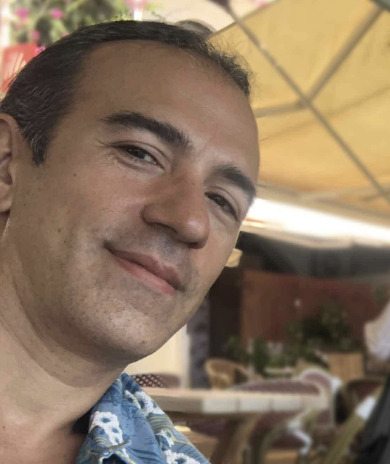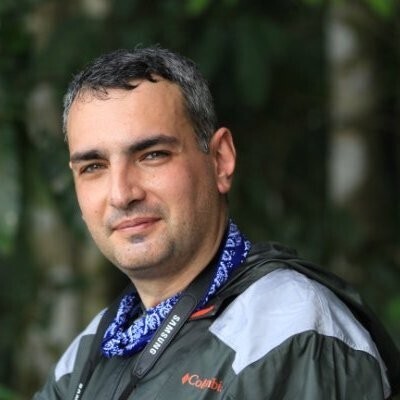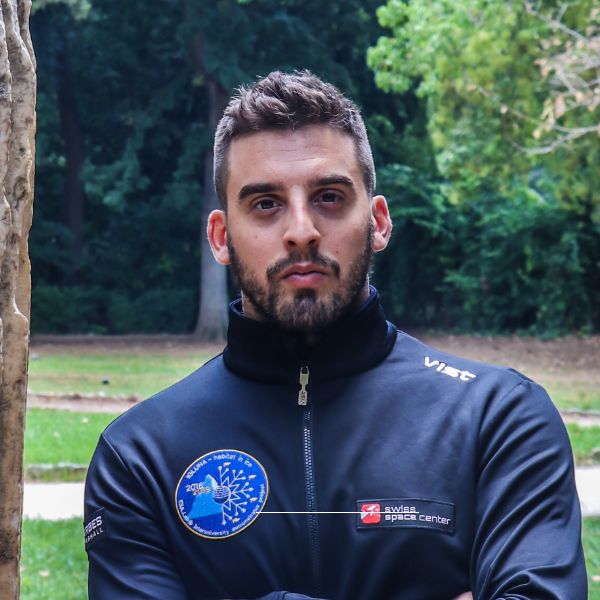Greeks in AI 2025
On the weekend of July 19-20, while the world continues to be reshaped by the rise of AI, our three-member team from LeanSpaceTech and Epignosis had the privilege of attending the very first Greeks in AI Symposium at Serafio in Athens. This landmark event brought together innovators, researchers, and entrepreneurs at the forefront of artificial intelligence.
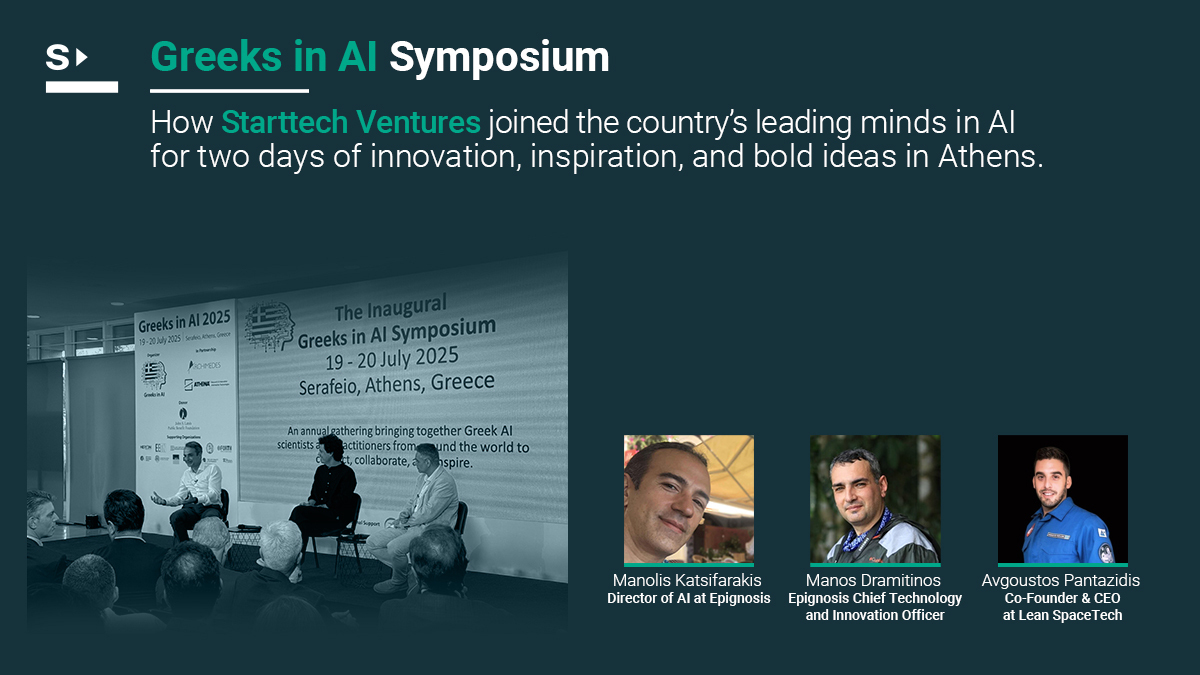
Here at the Starttech family of companies, we’ve been embracing AI from the earliest days of the boom, transforming not just our products, but our workflows and mindset too! Since we always try to stay on the cutting edge, the symposium was a great opportunity to meet others who are doing amazing things with AI, both in Greece and beyond. As always, we try to encourage such initiatives any way that we can and this time we did so by being an Emerald sponsor of the event.
It was clear from early Saturday morning that the turnout was going to be huge. Despite the sweltering Athens summer heat, people showed up in droves and luckily, we made it on time and managed to grab some decent seats. The event kicked off right on schedule, and to the organizers’ credit, they managed to keep things running smoothly throughout the day. That was no small feat, considering every talk sparked tons of questions from the audience, pushing the schedule right to the edge.
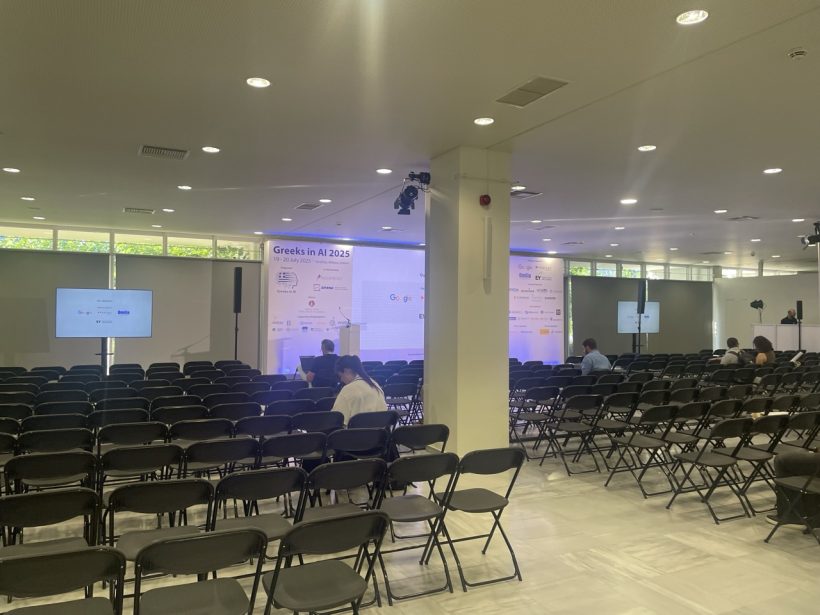
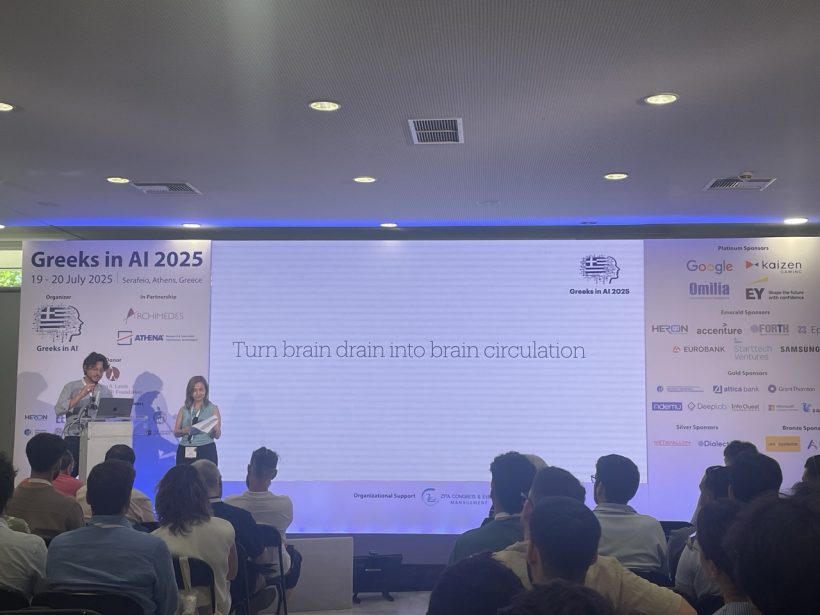
Following a warm welcome from the organizers, Professors Maria Papadopouli and Efstratios Gavves, Katerina Fragkiadaki took the stage to present her team’s truly remarkable work, “Learning World Simulators from Data.” It was a privilege to be in the presence of such accomplished scientists, and while our team comes from an AI practitioner background, her talk was clear, engaging, and easy to follow.
Most of all, it was downright impressive. Machine learning research applied to robotics and world understanding naturally lends itself to visually striking results and this talk was a perfect example. Getting even a glimpse into the science behind those results was not just inspiring – it was eye-opening. Last but not least, this was an ultra humbling experience:the complexity and impact of the work of Prof. Fragkiadaki made us revisit how truly complex the top difficult problems we tackle are. Indeed, our effort to bring to our customer the best value by means of both Artificial and Actual Intelligence is of great value to the thousands of customers and millions of users we serve but still this is nowhere close to ground breaking fundamental work in advancing the capabilities and performance of AI LLMs.
As the day went on, the Morning Spotlights session gave us a fascinating look into AI research across a wide range of fields: from low-level LLM topics and interpreting 3D spaces using 2D camera data, to classifying thyroid cancer using medical datasets. Once again, the presenters did an excellent job of making their work accessible, which kept the room full and the audience fully engaged throughout.
Thankfully, the organizers anticipated the growing crowd and brought in additional seating early in the day, so no one had to stand for more than a few minutes, even as attendance continued to grow.
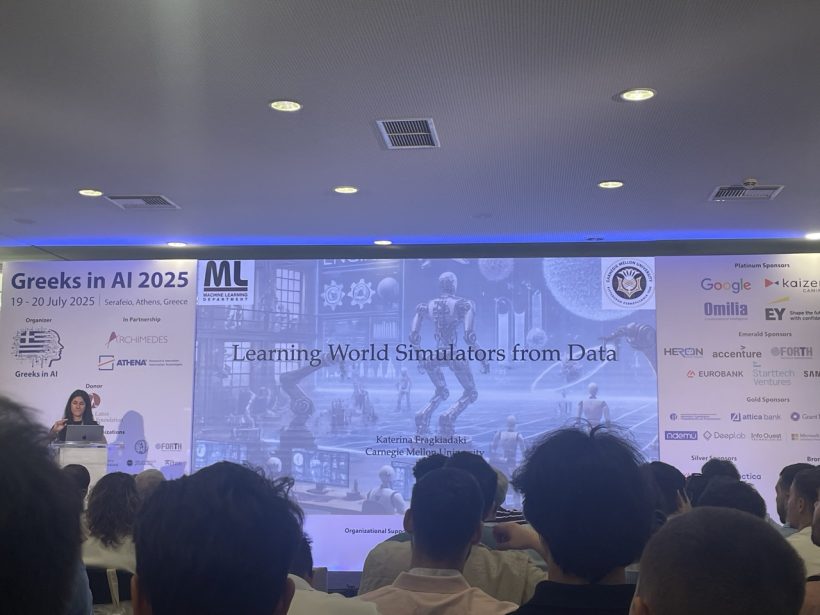
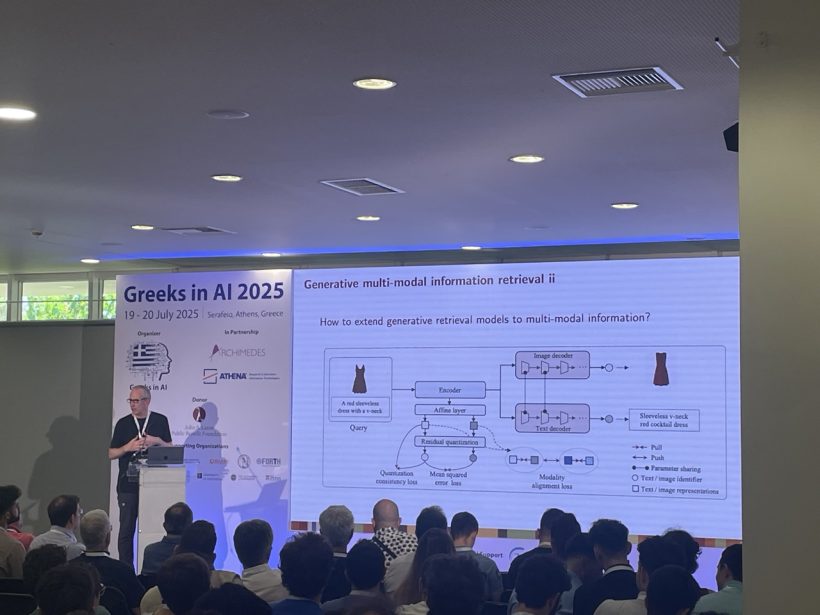
Later in the day, we had the chance to attend Maarten de Rijke’s insightful keynote on Generative Information Retrieval. As a team that works heavily with information retrieval at Epignosis, it was exciting to see such a fresh take on a field that’s been around for decades. His approach (applying LLMs to reinvent how we search and access information) was both innovative and highly relevant to our work. It offered a refreshing perspective on how foundational concepts can evolve in the age of generative AI.
Around midday, Maarten de Rijke joined five distinguished Greek scientists, working both in Greece and abroad, for the Greek AI Ecosystem panel, which focused on strategy and vision for the field. The discussion offered valuable insight into both near-term developments and long-term directions. It also addressed some of the long-standing challenges that have impacted both academia and industry in Greece, while highlighting potential solutions and creative workarounds. It was a thoughtful and forward-looking conversation that added depth to the day’s program. The questions and remarks from the audience were equally thought-provoking and added even more depth to an already rich discussion. Getting in depth to all the challenges regarding AI factories, data labs, opening up data to promote research and entrepreneurship in both national and pan-European level is a tremendously important task that can transform the society over areas such as preserving culture, advancing services, bringing education and health care to the next level plus creating career opportunities for talented students and researchers to do great work and impact the society as a whole.
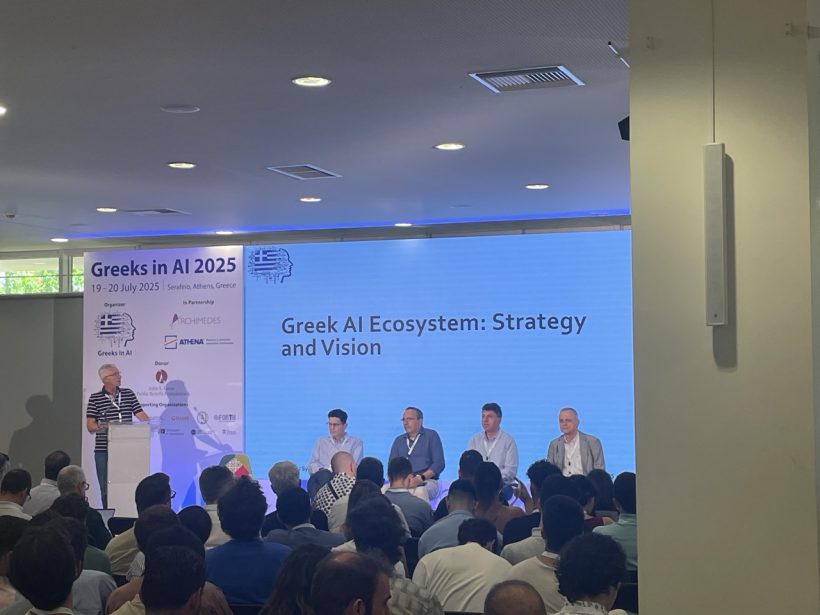
After the lunch break, Margarita Chli took the stage to present her team’s work on vision-based robotic perception—and we were hooked from the very first slides. Maybe it’s our inner engineering geeks, but honestly, I don’t think anyone could watch those videos of autonomously flying drones and stay unimpressed. The fact that such small crafts can perform real-time, automatic maneuvers using only minimal sensor input is incredible. Just a few years ago, this would have seemed like science fiction.
Next came the Afternoon Spotlights session, which admittedly was the most challenging one for us to follow. The topics were genuinely interesting, but they demanded our full focus. Had this session taken place earlier in the day, it might have been easier to stay sharp. Unfortunately, after spending some time under the 30-plus degree Athens sun during the lunch break, the heat started to catch up with us.
That was a shame, because the range of topics was once again impressive, from medical research on survival prediction in cancer patients to cutting-edge work on fingerspelling recognition using visual alignment learning. Despite our brain fog, we appreciated the depth and diversity of the work presented.
We were blown away by two presentations in the Startup Industry session.
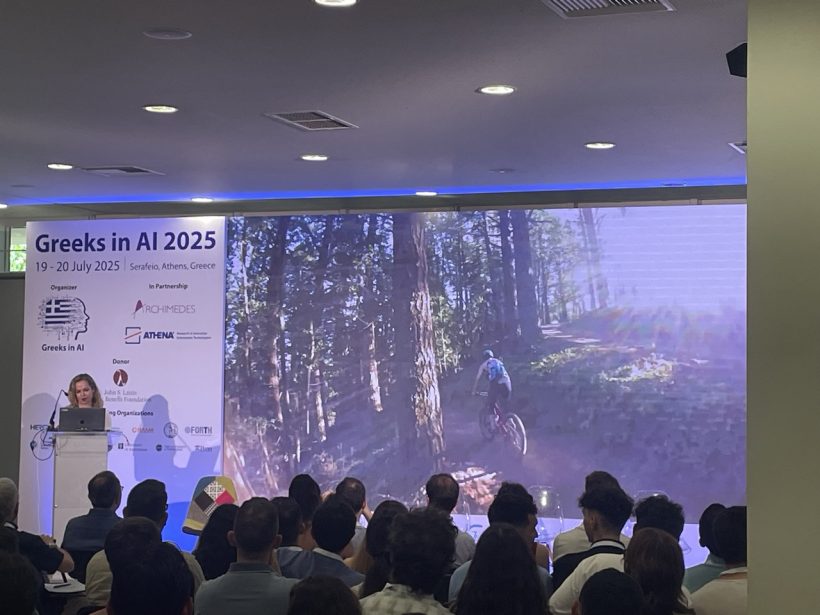
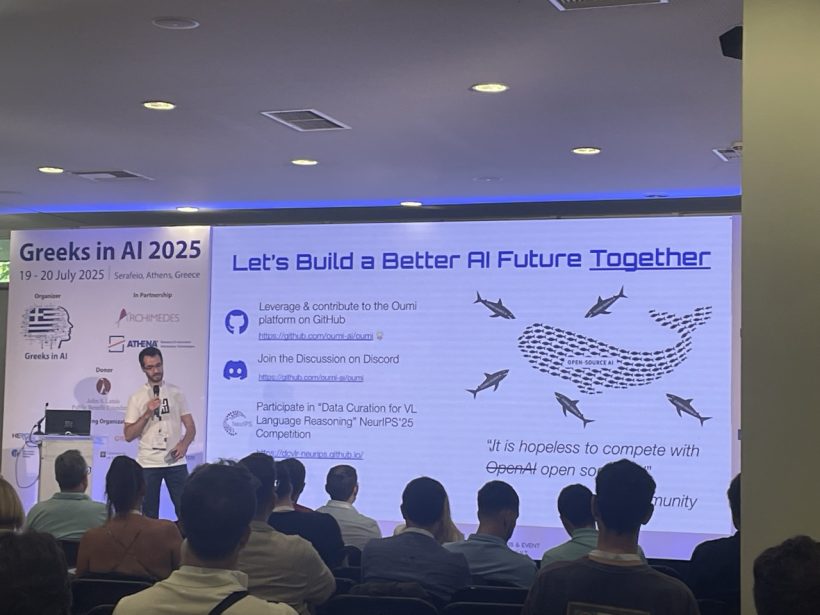
First up was Oumi.ai, a team with a bold vision: making AI truly open and accessible to everyone. In a time when big tech often promotes the idea that AI development is limited to a handful of major providers, Oumi.ai’s mission felt refreshingly rebellious. Their metaphor, likening themselves to Linux in its early days, was particularly inspiring.
Then came moverse, which aims to revolutionize 3D animation workflows with a frictionless, markerless, real-time motion capture system. Their demo videos were nothing short of jaw-dropping. As engineers, we couldn’t help but imagine how amazing it would be to get our hands on that technology ourselves!
Day 2 of Greeks in AI 2025 offered a powerful convergence of scientific depth, applied innovation, and strategic ambition. From Andreas Tolias’ keynote on foundation models and digital twins of the brain to Manolis Kellis’ vision of cognitive cartography, the event bridged theory and real-world impact. The Innovation & Industry panel featuring leaders from Eurobank, Accenture, EY, and Kaizen Gaming highlighted how AI is reshaping core sectors of the Greek economy. Meanwhile, poster sessions and spotlights explored everything from exoplanet detection and multimodal visual transformers to generative image modeling and biomedical inference. What emerged was clear: the Greek AI ecosystem is not only participating in global progress, it’s helping shape its next frontiers.
Concluding, this has been a top class event with amazing speakers, captivating presentations and covering every aspect of AI, including societal. Resorting back to the Oumi.ai initiative, we would also like to add our own voice to the valiant goal and the cry of help regarding the control of AI and preventing it from becoming a commercial oligopoly in the hands of few. The technological advancements we witnessed at the symposium are truly remarkable! But whom “will AI really serve”? The fact that the AI ecosystem is currently broken, non-transparent and fully commercialized in the expense of transparency, openness, collaboration and innovation is not a given; but it will be if we do not do something about it and stand by those who fight humbly to ensure that AI will be in the service of humanity and not the opposite. Or as Shakespeare wrote: “See first that the design is wise and just: that ascertained, pursue it resolutely; do not for one repulse forego the purpose that you resolved to effect.“.
